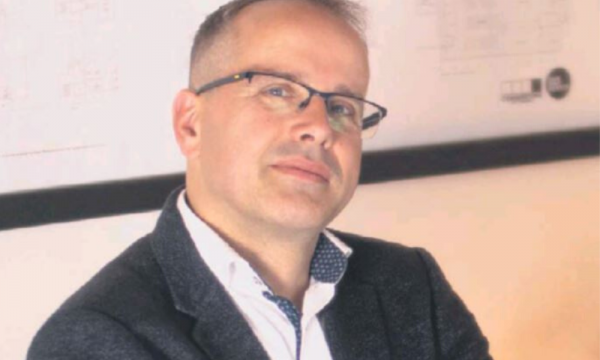Business consultant Paul has been able to use his background in psychology to help organisations function more effectively.
The post: Business Consultant and Developer, KEYS Consulting
The post holder: Paul de Cock
Here’s how he became a Business Consultant
Give a brief outline of your career to date.
My background is in academia and has spanned a 12-year career, including completing a PHD in Psychology from Ulster University and holding various positions in universities across both Northern Ireland and Holland. With these universities I lectured in psychology, research methods and public health and also led research groups and managed a college.
After developing an interest in business consultancy and recognising that organisations could avail of my expertise on psychological models, psychometrics and data analysis, I decided to embark on a new challenge.
How did you get into your area of work?
My route was via psychology. I really just wanted to help people and I quickly realised that rather than looking at someone’s mental illness as a ‘problem’ or something that was ‘wrong’ with them, I wanted to challenge these stigmas and focus on an outlook that would empower, enable and energise people through looking at their positives. Everyone has their own unique DNA, the way they are wired, and this can be used to help you move into a greater and healthier future. The same is true for businesses – discovering the unique DNA of a business can help to re-balance an organisation towards having a greater impact in their field.
Is this what you always wanted to do?
I don’t know whether this exact role was always in my focus, but the principles I am applying to it definitely were.
Were there any particular essential qualifications or experience needed?
I think for my role life experience is essential. I believe you need to be a learner and always up for continuing your own development with knowledge and skill. Qualifications are also useful, but it really depends on your field of expertise. In my case my Psychology education has given me the necessary foundation for where I am now.
Are there alternative routes into the job?
For organisational consultants, everyone’s route appears to be different. My route, in a sense, can be seen as quite typical. I worked hard and developed a level of excellence and expertise in a particular area – and by doing this I eventually found that people and organisations began to approach me for the unique input I was able to provide. It’s all about finding what you love and what you’re good at and taking it from there.
What are the main personal skills your job requires?
My job relies heavily on not just having analytical and strategic thinking skills but also on strong interpersonal skills.
What does a typical day entail?
My day can vary substantially. The core of my work involves face-to-face meetings and delivering workshops to clients. If I’m not doing this, you will either find me travelling to meet colleagues and clients in the Netherlands and Germany or I’ll be sitting behind my laptop analysing collected data and developing training materials.
What are the best and most challenging aspects of the job?
I love the process of transformation. I love to see people and organisations discovering who they are and what they are meant to be and do. This comes with results and that is definitely one of the most rewarding parts of the job. In terms of challenges, I can find the administrative side of running my own business difficult. Fortunately, I have been able to outsource some of that to others which enables me to focus on my own strengths.
Why is what you do important?
I believe that the tools we have developed in KEYS are capable of transforming any business, department, church, society or even a school. Where we have implemented our tools, we have seen employee sick leave drastically reduce, employee engagement go up and business growth increase. We believe that living according to your own unique DNA can increase wellbeing and have a positive impact and this proves true for both individuals and businesses. When an organisation rediscovers its DNA and starts to function accordingly, it will thrive.
What advice would you give anyone looking to follow a similar career path?
Be a learner. Keep developing in your area of expertise and don’t let it go stale.
Thinking of becoming a Business Consultant?
Follow nijobfinder on Facebook and Twitter to see the latest jobs and to ensure your dream job won’t pass you by.


